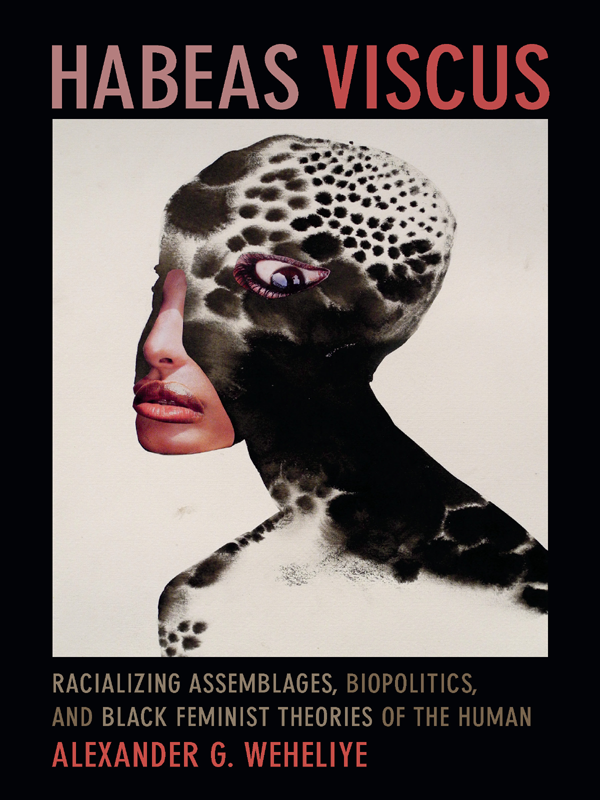David Macey: Frantz Fanon: A Biography (2000–)
Filed under book | Tags: · algeria, biography, colonialism, communism, existentialism, france, literature, marxism, négritude, philosophy, psychiatry, race, racism

“Born in Martinique, Frantz Fanon (1925–61) trained as a psychiatrist in Lyon before taking up a post in colonial Algeria. He had already experienced racism as a volunteer in the Free French Army, in which he saw combat at the end of the Second World War. In Algeria, Fanon came into contact with the Front de Libération Nationale, whose ruthless struggle for independence was met with exceptional violence from the French forces. He identified closely with the liberation movement, and his political sympathies eventually forced him out the country, whereupon he became a propagandist and ambassador for the FLN, as well as a seminal anticolonial theorist.
David Macey’s eloquent life of Fanon provides a comprehensive account of a complex individual’s personal, intellectual and political development. It is also a richly detailed depiction of postwar French culture. Fanon is revealed as a flawed and passionate humanist deeply committed to eradicating colonialism.”
First published by Picador, 2000
Second edition published by Verso, London, 2012
ISBN 9781844677733, 1844677737
xxii+639 pages
Reviews: Megan Vaughan (London Review of Books, 2001), Peter Lennon (The Guardian, 2001), Mark Christian (Journal of Colonialism and Colonial History, 2002), Gareth Stanton (History Workshop Journal, 2002), Ciaran Mulholland (Socialist World, 2002), Godwin Kwadwo Osei-Nyame (Research in African Literatures, 2004), Kirkus Reviews (2001), Publishers Weekly (2001), Stephen Howe (New Humanist, 2013).
Interview with author (Theory, Culture & Society, 2011).
Comment (0)Alexander G. Weheliye: Habeas Viscus: Racializing Assemblages, Biopolitics, and Black Feminist Theories of the Human (2014)
Filed under book | Tags: · assemblage, bare life, biopolitics, black people, feminism, freedom, human, property, race, racialization, racism, slavery, theory

“Habeas Viscus focuses attention on the centrality of race to notions of the human. Alexander G. Weheliye develops a theory of ‘racializing assemblages,’ taking race as a set of sociopolitical processes that discipline humanity into full humans, not-quite-humans, and nonhumans. This disciplining, while not biological per se, frequently depends on anchoring political hierarchies in human flesh. The work of the black feminist scholars Hortense Spillers and Sylvia Wynter is vital to Weheliye’s argument. Particularly significant are their contributions to the intellectual project of black studies vis-à-vis racialization and the category of the human in western modernity. Wynter and Spillers configure black studies as an endeavor to disrupt the governing conception of humanity as synonymous with white, western man. Weheliye posits black feminist theories of modern humanity as useful correctives to the ‘bare life and biopolitics discourse’ exemplified by the works of Giorgio Agamben and Michel Foucault, which, Weheliye contends, vastly underestimate the conceptual and political significance of race in constructions of the human. Habeas Viscus reveals the pressing need to make the insights of black studies and black feminism foundational to the study of modern humanity.”
Publisher Duke University Press, Durham, 2014
ISBN 9780822356912, 0822356910
x+209 pages
Reviews: Ashon Crawley (LARB, 2015), Marianna Szczygielska (Parallax, 2015), Aditi Surie von Czechowski (Comp Stud South Asia, Africa and Middle East, 2015), Marianela Munoz and Charles Holm (Afro-Paradise, 2015), Megan H. Glick (Hypatia Rev, 2015), Shelleen Greene (Somatechnics, 2016), Amber Jamilla Musser (philoSOPHIA, 2016), Gabriela Radulescu (Allegra Lab, 2016), Ander Mendiguren Nebreda (Athenea Digital, 2017, ES).
Comment (0)Fionnghuala Sweeney, Kate Marsh (eds.): Afromodernisms: Paris, Harlem, Haiti and the Avant-garde (2013)
Filed under book | Tags: · aesthetics, africa, afromodernism, art, art history, avant-garde, black people, blackness, body, colonialism, dance, futurism, jazz, modernism, music, politics, racism, sexuality, surrealism

“This collection of ten essays makes a persuasive case for a black Atlantic literary renaissance and its impact on modernist studies. The chapters stretch and challenge current canonical configurations of modernism in two ways: by considering the centrality of black artists, writers and intellectuals as key actors and core presences in the development of a modernist avant-garde; and by interrogating ‘blackness’ as an aesthetic and political category at critical moments during the twentieth century. This is the first book-length publication to explore the term ‘Afromodernisms’ and the first study to address together the cognate fields of modernism and the black Atlantic.”
Publisher Edinburgh University Press, 2013
ISBN 074864640X, 9780748646401
264 pages
Review: Dominic Thomas (French Studies, 2013).
PDF (updated on 2020-6-9)
Comment (0)
